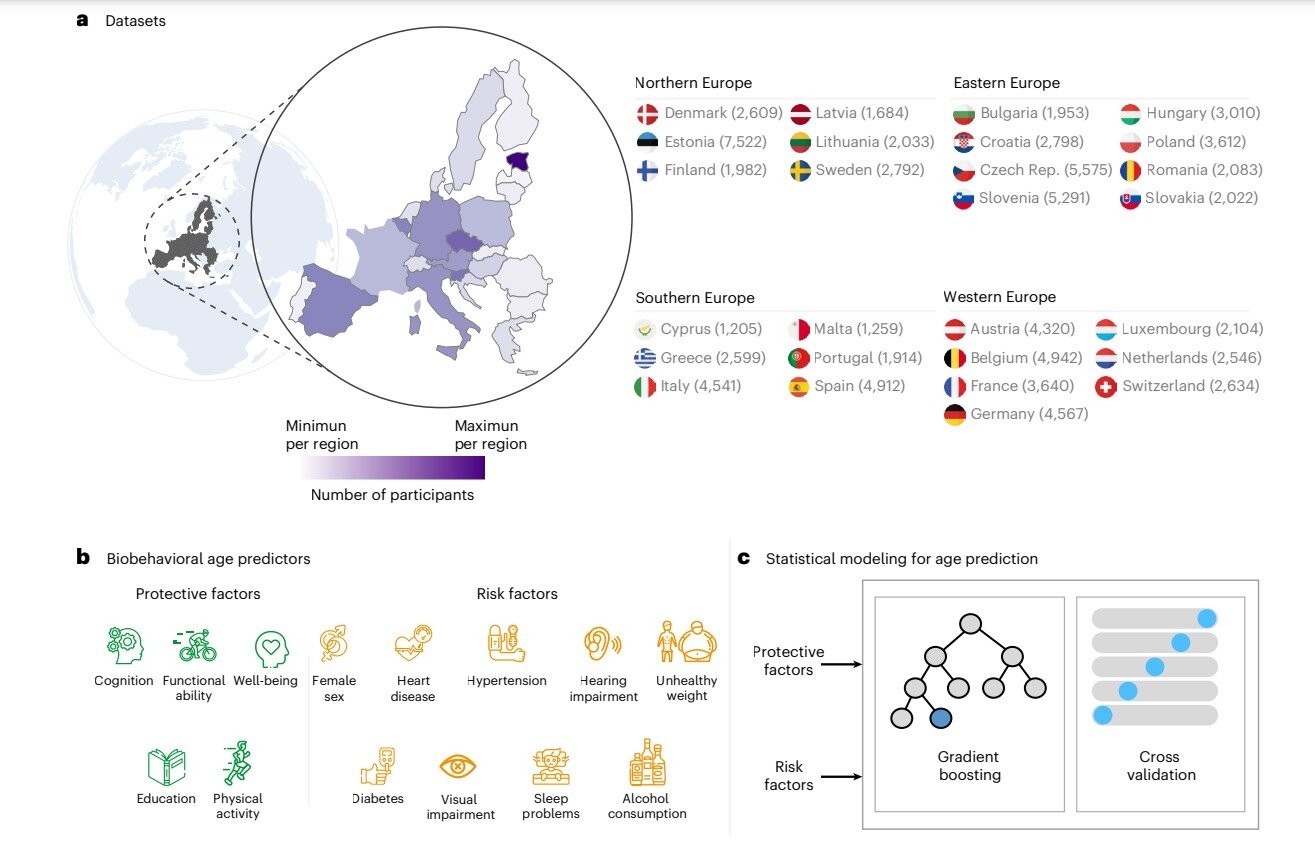Speaking more than one language appears to significantly slow down the brain’s aging process, reducing the risk of accelerated cognitive decline, according to a new study analyzing data from over 86,000 adults across Europe. The research, published in Nature Aging, suggests that the constant mental effort required to manage multiple languages builds cognitive resilience, effectively keeping the brain younger for longer.
The Biobehavioral Age Gap: A Novel Measurement
Researchers utilized a new metric called the Biobehavioral Age Gap (BAG) to assess aging rates. The BAG compares a person’s biological age – calculated using health and lifestyle data – to their chronological age. A positive BAG indicates accelerated aging, while a negative one suggests delayed aging. This method provides a more nuanced understanding of aging than simply relying on years lived.
Key Findings: Multilinguals Age More Slowly
The study revealed that monolingual individuals were twice as likely to exhibit accelerated aging compared to those fluent in multiple languages. Longitudinal data also showed monolinguals were 1.4 times more likely to develop faster aging over time. Importantly, the protective effect appeared dose-dependent : the more languages spoken, the stronger the benefit.
Why Does This Happen? Constant Cognitive Exercise
The researchers attribute these findings to the ongoing mental workout that multilingualism provides. Even when not actively using all languages, the brain remains engaged in constant switching, attention management, and memory recall. This sustained cognitive activity builds reserves that delay age-related decline.
Implications for Public Health
The study underscores the importance of multilingual education not only for communication but also for long-term brain health. Policymakers should recognize multilingualism as a tool for promoting cognitive resilience in an aging global population.
The Aging Global Population
The world’s population is aging rapidly, with the World Health Organization (WHO) estimating that one in six people will be aged 60 or older by 2030. Understanding the factors that influence healthy aging is crucial, and this study adds compelling evidence to the benefits of multilingualism.
© 2025 Science X Network
